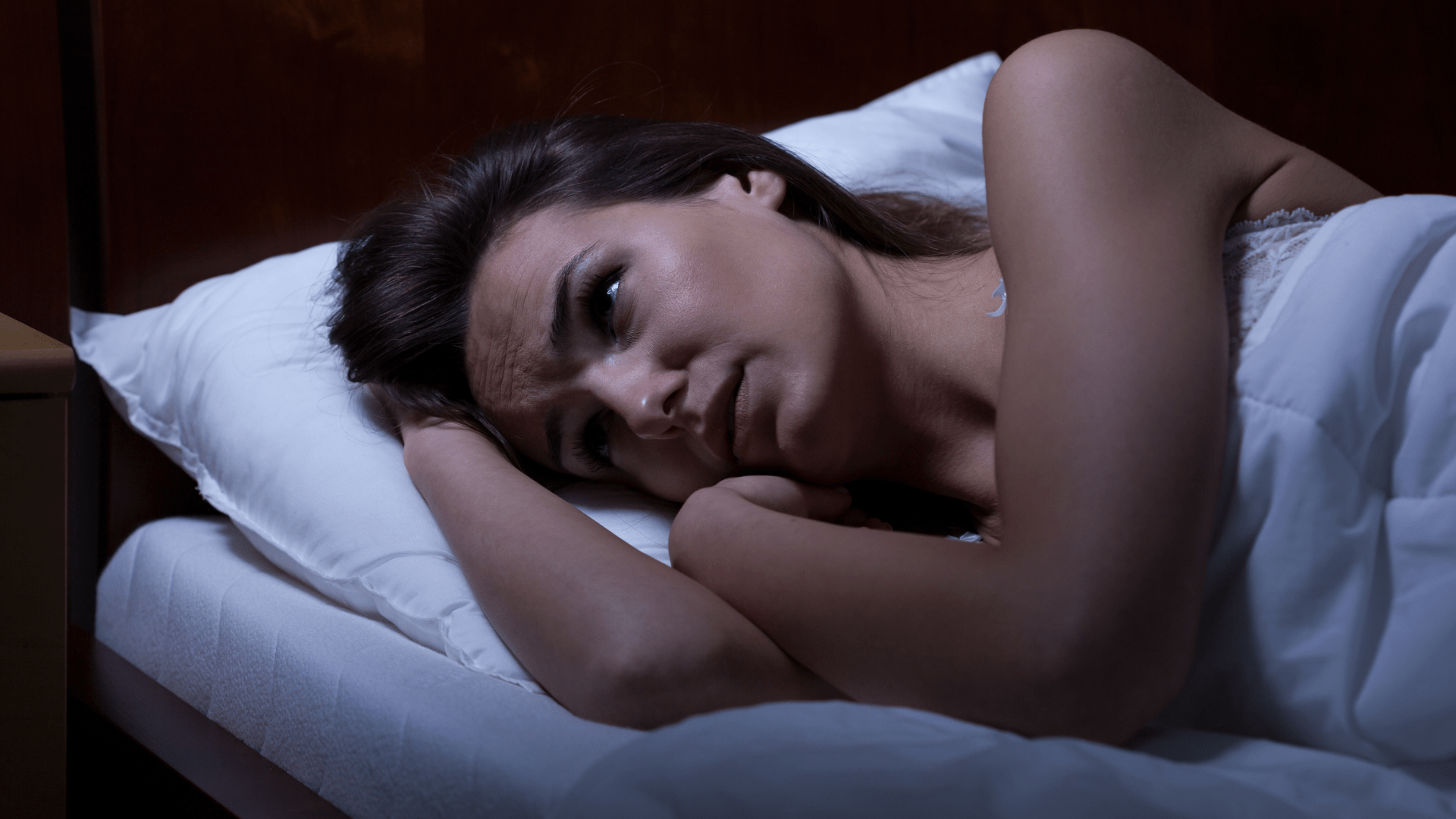Why Are You Suddenly Struggling to Sleep?
You used to fall asleep easily. Maybe you’d wake up once in a while, but nothing like this. Now, your nights feel like a battle.
✔ You wake up multiple times, unable to settle back down.
✔ Your mind races the moment your head hits the pillow.
✔ You feel exhausted in the morning, no matter how long you were in bed.
✔ Even when you sleep, it never feels restful.
You’re not imagining things. Up to 60% of perimenopausal women experience sleep disturbances, according to the Journal of Clinical Sleep Medicine.
So why does this happen? It’s not just “getting older.” Your hormones are shifting, and they directly impact how well you sleep.
How Perimenopause Disrupts Your Sleep
During perimenopause, your body’s natural sleep-wake cycle becomes unstable because key hormones like estrogen, progesterone, and cortisol fluctuate unpredictably.
Here’s how each one affects your ability to fall asleep, stay asleep, and wake up feeling refreshed:
1. How to Stay Asleep Through the Night (Estrogen & Temperature Regulation)
-
- Estrogen helps regulate melatonin, the hormone that controls sleep. When estrogen drops, your body struggles to maintain deep sleep.
- Estrogen also controls body temperature. When levels decline, hot flashes and night sweats disrupt sleep cycles.
A 2018 study in Sleep Medicine Reviews found that women with lower estrogen levels had a 40% increase in sleep disturbances.
What Can Help?
-
- Keep your bedroom cool. Ideal sleep temperature is 60-67°F (16-19°C)—use a fan, cooling sheets, or breathable fabrics.
- Eat estrogen-supporting foods. Flaxseeds, soy, and chickpeas contain plant-based estrogens that may help balance levels (American Journal of Clinical Nutrition).
- Limit alcohol before bed. It worsens night sweats and lightens sleep cycles.
2. How to Calm Your Mind & Body Before Bed (Progesterone & Anxiety Control)
-
- Progesterone is your natural sedative. It helps calm your nervous system and reduces nighttime anxiety.
- When progesterone drops, your ability to relax is disrupted, making you feel wired and restless at night.
A 2023 study in the Journal of Endocrinology found that low progesterone was directly linked to increased nighttime awakenings.
What Can Help?
-
- Increase magnesium intake. Magnesium supports progesterone and relaxes the nervous system. Best sources: Pumpkin seeds, almonds, spinach.
- Try the 4-7-8 breathing technique. Inhale for 4 seconds, hold for 7, exhale for 8—this lowers stress hormones and signals sleep readiness.
- Drink chamomile tea. Chamomile naturally supports progesterone and promotes deeper sleep.
3. How to Stop Stress from Waking You Up (Cortisol & Middle-of-the-Night Wake-Ups)
-
- Cortisol is your body’s stress hormone. It should naturally drop at night, but during perimenopause, it stays high longer, making sleep light and fragmented.
A 2024 study in Frontiers in Sleep found that perimenopausal women had 29% more nighttime cortisol spikes, making them more likely to wake up multiple times.
What Can Help?
-
- Get morning sunlight. Natural light resets your internal clock and lowers nighttime cortisol.
- Avoid screens 1-2 hours before bed. Blue light disrupts melatonin production, making it harder to fall and stay asleep.
Use a relaxation ritual. A warm bath, journaling, or stretching lowers stress and signals your body it’s time for sleep.
🛑 Real Talk: What Perimenopause Sleep Struggles Feel Like
Caroline, now 67, started experiencing perimenopause-related sleep issues in her early 40s.
💬 “In the early days of perimenopause, I would wake up super early and not be able to go back to sleep. Then I developed insomnia—I’d lie awake for hours, exhausted but unable to rest.” – Caroline (ACOG)
At first, she assumed it was just stress. But as the months went on, her exhaustion worsened, and she started feeling irritable, anxious, and out of control.
She eventually found relief through:
✔ Talk therapy to manage anxiety.
✔ Medication to improve sleep quality.
✔ Exercise and creative outlets to reduce stress.
💡 Caroline’s story highlights an important truth—some women find relief with lifestyle changes, while others need medical intervention.
Quick Fixes for Better Sleep Tonight
Not sure where to start? Try these tonight and see if they help:
-
- Cut out sugar before bed. It prevents blood sugar crashes that trigger cortisol spikes.
- Eat a small protein + fat snack before sleep (Greek yogurt with almonds).
- Use blackout curtains to block artificial light that disrupts melatonin.
- Take magnesium glycinate before bed—shown to improve deep sleep.
When to Consider Hormone Testing
If you’ve tried everything and still struggle with sleep, it might be time to check your hormone levels.
✔ Your doctor can test estrogen, progesterone, and cortisol levels to identify imbalances.
✔ If needed, hormone therapy (HRT) can help rebalance these levels and improve sleep.
How Amazing Meds Can Support You
Perimenopause can make sleep feel impossible—but it doesn’t have to be this way. Small changes can make a big difference, and there are solutions that work.
If sleepless nights are draining your mood, energy, and daily life, you don’t have to figure it out alone.
At Amazing Meds, we help women:
-
- Assess their hormone levels with expert testing.
- Develop personalized treatment plans (natural solutions, HRT, or a combination).
- Find real relief—without trial and error.
If perimenopause is keeping you up at night, we’re here to help.
What’s Next?
🔥 Why is weight suddenly harder to manage?
🔥 Is perimenopause slowing your metabolism?
🔥 How does stress impact weight gain in your 40s & 50s?
💡 Our next blog uncovers why perimenopause changes your metabolism—and how to take control of your weight again.

Celeene Rae
Writer & Blogger @ Amazing Meds





0 Comments